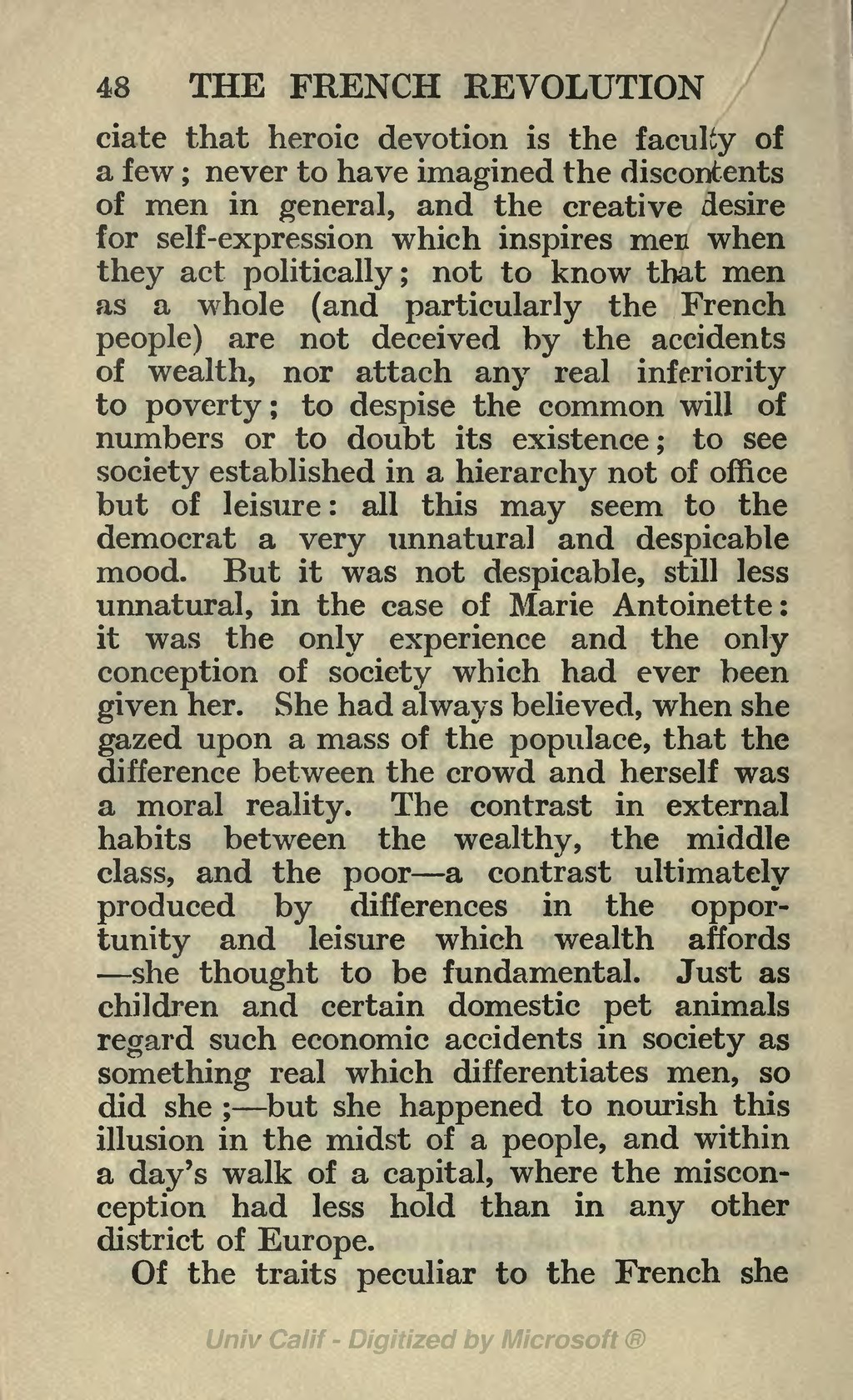ciate that heroic devotion is the faculty of a few; never to have imagined the discontents of men in general, and the creative desire for self-expression which inspires men when they act politically; not to know that men as a whole (and particularly the French people) are not deceived by the accidents of wealth, nor attach any real inferiority to poverty; to despise the common will of numbers or to doubt its existence; to see society established in a hierarchy not of office but of leisure: all this may seem to the democrat a very unnatural and despicable mood. But it was not despicable, still less unnatural, in the case of Marie Antoinette: it was the only experience and the only conception of society which had ever been given her. She had always believed, when she gazed upon a mass of the populace, that the difference between the crowd and herself was a moral reality. The contrast in external habits between the wealthy, the middle class, and the poor—a contrast ultimately produced by differences in the opportunity and leisure which wealth affords—she thought to be fundamental. Just as children and certain domestic pet animals regard such economic accidents in society as something real which differentiates men, so did she;—but she happened to nourish this illusion in the midst of a people, and within a day’s walk of a capital, where the misconception had less hold than in any other district of Europe.
Of the traits peculiar to the French she

